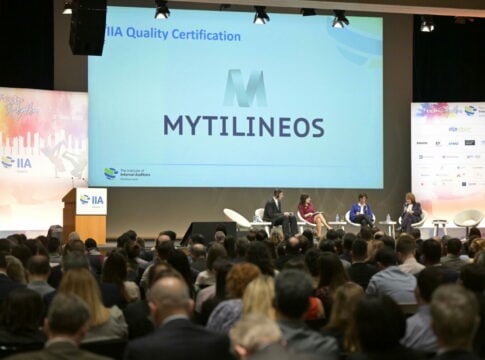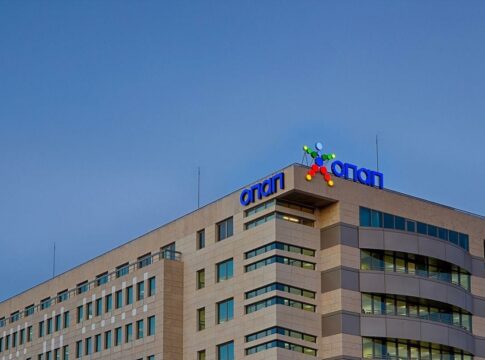The evolution of private consumption is a decisive factor for the performance of the Greek economy in 2024, as it has historically represented about 2/3 of the country’s Gross Domestic Product, according to Alpha Bank analysts. Meanwhile, consumers are experiencing continued economic pressure from inflation and geopolitical conditions, despite employment growth and a recent increase in the minimum wage.
The “hybrid” new reality
A new reality that is emerging in retail trade stems from the convenience offered by e-commerce on the one hand and the pleasure offered by traditional stores on the other hand. The issue was discussed during the conference “The Future of Consumer Landscape: The Way Forward”, in the context of the Delphi Economic Forum. Physical stores remain strong, emphasized Dimitris Valachis, CEO of the Fourlis Group, adding that consumers have demands from the brand and not from the channel they make their purchase. The shopping journey can start in the physical store and be completed online and vice versa.
According to Valia Aranitou, professor at the National and Kapodistrian University of Athens, the “hybrid store” is a combination of consumer experience in a physical and digital environment. “The hybrid store will dominate,” she estimated, adding that “the walk to the store is likely to be completed with an electronic purchase.” She also added that today 65% of Greek consumers also use a card compared to 45% before the pandemic. The percentage is higher among young people, however there is still a 30% of Greeks who only use cash. In this context a catalytic factor is the control of the customer experience end to end. The further development of e-commerce and related digital tools can contribute to the development of businesses and especially the combined development of the trade and hospitality sector.
Giorgos Tsopelas, president and CEO of Greece and Cyprus in McKinsey & Company, pointed out at the recent Delphi Economic Forum, Greek companies are 2.6 times less productive than the European average. In the smallest companies, which make up 95% of the Greek economy, the gap reaches 3.8 times. “If we don’t seriously start digitization, we won’t be able to bridge this gap,” Tsopelas warned, adding that “despite the great progress, if you look at the different indicators where the position of Greece is recorded, you will be disappointed. We are still far behind.” In its research on the advantages of the development of digital marketing and e-commerce in Greece, McKinsey proceeded with a “bottom-up” exercise, examining retail trade and hospitality. The research showed that if Greek businesses, of all sizes, take one step forward they will add 4.5 billion euros or 2.5% of the gross added value to the entire Greek economy over a 5-year horizon. Specifically, for the hospitality sector alone, the profit amounts to 3 billion euros.
At the micro-business level, the research found that moving from early to mid-maturity to digital marketing and e-commerce is a small investment that yields big rewards. For example, in a small hotel an investment of 1,500-2,000 euros yields annual profits of 2,500-3,300 euros from cost savings and increased revenue. “If Greece does not solve the problems of productivity, it will not be able to grow at a rate of 3%-4% but at a much slower rate,” Tsopelas estimated, adding that digitalization requires four conditions:
- Supporting training and reskilling
- Understanding the advantages of the digital transition
- Enhancing customer confidence in the security of transactions and
- Introducing incentives such as tax exemptions and the promotion of e-procurement.















